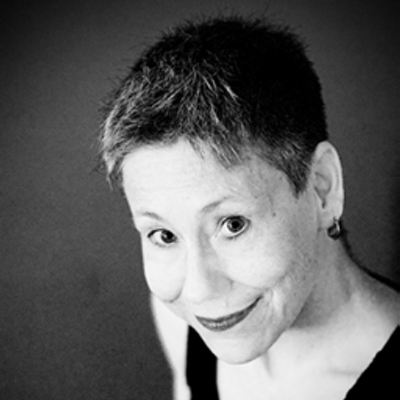Susan Harris' insights into translated world literature
Interview with the editorial director of Words Without Borders
In this installment of Corners of the Mind, it is with great pleasure and joy that we are hosting Mrs. Susan Harris, editorial director at Words Without Borders. Mrs. Harris is an experienced and skilled professional who also happens to be one of the nicest people in the industry. Her insightful answers below read like a compass to translators, editors, language enthusiasts, and curious readers of our increasingly interconnected world. So, without further ado, behold words of urgency and agency by the wonderful Susan Harris.
1. Dear Mrs. Harris, it is a great pleasure and honor to have you with us on this writing corner. First off, please tell us a bit about Words Without Borders, the online literary magazine you are working for, and its mission.
Words Without Borders was dreamed up in the late 1990s by Alane Salierno Mason, a vice-president and senior editor at W. W. Norton. Most US editors aren’t able to read in many languages, and Alane originally envisioned the site as being primarily industry-facing, presenting translated excerpts of works as aids to editors who couldn’t read the originals. Alane was joined by our founding editor, Samantha Schnee (herself a stellar translator from Spanish), and Dedi Felman, who was then an editor at Oxford University Press. By the time we launched in 2003, we’d settled on our mission: we present the world’s best literature, translated into English, not only to editors but to readers everywhere. Since we’re free and online, we’re accessible to anyone with an internet connection. To date we’ve published over 5,000 pieces by writers from 141 countries, translated from 133 languages. We’re celebrating our twentieth year in 2023.
2. Have you always wanted to work in publishing? Please elaborate on your early beginnings and career path before undertaking the position of editorial director at Words Without Borders. Have you always had an interest in world literature or has it been an accidental and fortunate happenstance that you work for WWB?
I’d always had an interest in world literature and have always been eager to read work from elsewhere, but am, shamefully, monolingual. I went to college as an English major and was horrified to learn that that meant reading American and English writers, rather than international. I couldn’t be a comparative literature major because I had no foreign languages. So I took all the comparative literature courses offered in English that I could. I always wanted to work in publishing, but wasn’t sure how to do that, since I lived in Chicago and the industry was based in New York (this is when I was first out of college, many years ago). Then, in a stroke of great good fortune, my senior year adviser, with whom I’d stayed in touch, became the director of Northwestern University Press and invited me to work as his assistant. He was very interested in East European literature, and I worked with him to build a list of books translated from multiple languages. And that’s how I got into translation publishing, thirty-seven years ago. I was with Northwestern for sixteen years, leaving as the director and editor in chief, and joined Words Without Borders in May 2003, a few months before we launched.
3. Drawing on your experience, which region or country in the world is underrepresented in the international literary landscape, and why is that, in your opinion? From which language(s) would you like to see more translations into English?
Too little African literature is available in English, and what we do have tends to be from the colonial languages (French, Portuguese, Spanish). I’m always trying to find new work in the noncolonial languages of Africa. I also want to see more from Southeast Asia, and from the less well known Indian languages.
4. Recently, significant steps and actions have been taken toward the literary translator’s visibility and recognition. From your point of view, how fruitful have these efforts been so far, and what more is left to be done?
The Name the Translator initiative, which advocated for translators’ names on the covers of their books, has been quite successful in raising consciousness outside the immediate translation community. There are many more issues to be addressed: the low pay and difficulty of making a living, the hours of unpaid labor required, the need for more translators of color. All of these reforms will take time, effort, and, above all, funding—always the problem for the publishing industry as a whole, but particularly with translations.
It's important to retain the elements that make a work unique, and not to erase the cultural markers and details; and it’s also crucial not to “other” the original text and writer. - Susan Harris
5. On the issue of translation into English, Ann Morgan, the renowned UK-based world literature explorer we have interviewed on Corners of the Mind, has said “If we’re not careful, our sense of the character of different nations’ literatures can become a Western construct rather than a true reflection.” The downscaling or even elimination of cultural differences can sometimes lead to an Englishized version of the text, so as not to appear “odd” or “foreign” to the English-speaking reader. What is your opinion on this domestication vs foreignization debate in translation?
Ann Morgan is completely correct. And the construct she mentions is exacerbated by the fact that in the US we know so much of the world through a strictly political prism. Literature is crucial to understanding other cultures, but it’s important to understand the context in which it’s written. It's important to retain the elements that make a work unique, and not to erase the cultural markers and details; and it’s also crucial not to “other” the original text and writer. For example, publishers are not only keeping foreign words in texts, but no longer italicizing them, since italicization has come to be understood as linguistic gatekeeping: italicizing words, calling attention to their foreignness, distinguishes between what “belongs” in English and what doesn’t. So we’re very sensitive to these issues, and to presenting texts that work in English while preserving their character.
6. On the other hand, it is often argued that writers all over the world, even when writing in their mother tongue, subconsciously address an international audience, by using Englishized elements in terms of style, language, story structure, etc. Have you noticed the same in your readings?
Haruki Murakami is often mentioned in this context, since he writes in an intentionally simple style which many feel facilitates translation. We don’t come across that approach much in what we publish, but it’s certainly present. Translation into English is necessary for writers to establish an international reputation, so I can certainly understand the impulse.
The pandemic has been wonderful for reading, but challenging for retailers. - Susan Harris
7. How do you see the status and evolution of the publishing industry?
Such a big question! Translation publishing has expanded enormously in the last fifteen years; I hope to see that trend continue. It’s difficult for the independent publishers to compete with the majors, which have more extensive financial resources and deeper backlists; independent bookstores battle Amazon; the pandemic has been wonderful for reading, but challenging for retailers.
8. Do you have a preferred literary genre, especially from a specific part of the world?
I read primarily contemporary fiction in translation, with occasional breaks for literary nonfiction and reportage; and I’m trying to balance my early Eurocentrism with more work from the rest of the world. The last few books I read were novels translated from Japanese, German, French, Bulgarian, and Hindi.
9. Which book(s) is/are on your nightstand at the moment?
Disgracefully, I’d never read Annie Ernaux before her Nobel, so I’m reading her books. And I have a very long to-be-read list.
Thank you so much for your time, Mrs. Harris!
Thank you for your excellent questions!
Articles by Mrs. Susan Harris can be found here and here
You can watch her lecture on "Literature from 'Enemy Nations' and Others: Words without Borders"? below:
You can also watch an exceptional online discussion Mrs. Harris moderated with Olga Tokarczuk and twelve of her translators in September 2020 as part of the Translating the Future conference:
With gratitude,
Katerina







